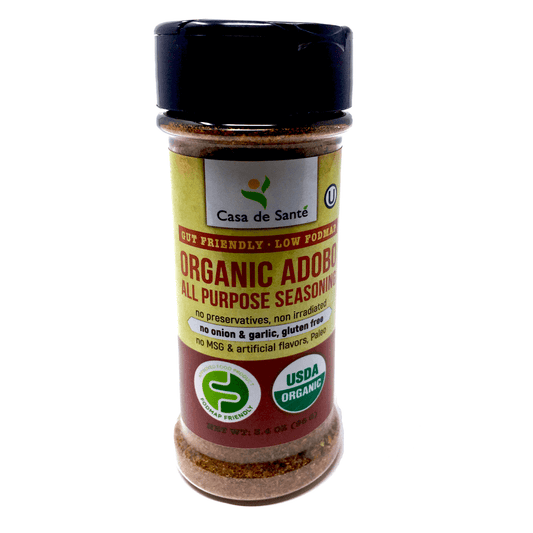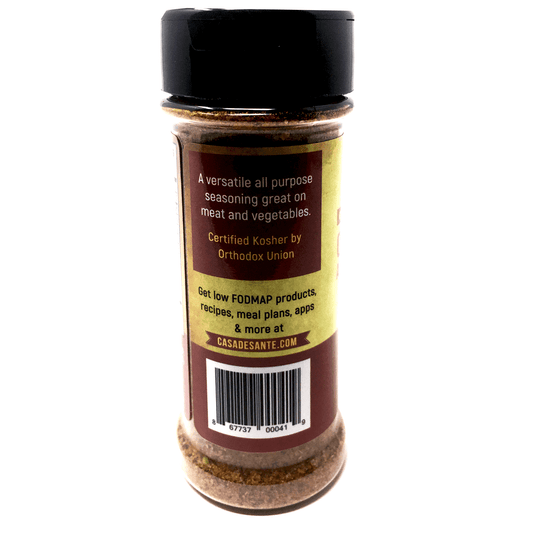Constipation On The Elemental Diet
The elemental diet is a specialized form of nutrition that is used to manage various health conditions. While it can be highly effective in providing essential nutrients, some individuals may experience constipation as a side effect. In this article, we will delve into the understanding of the elemental diet, the connection it has with constipation, and how to prevent and treat constipation while on this diet. We will also explore the long-term implications and the potential risks and benefits associated with the elemental diet.
Understanding the Elemental Diet
The elemental diet is a carefully formulated liquid diet that consists of pre-digested nutrients in their simplest forms. It is designed to provide all the essential nutrition required by the body while allowing the digestive system to rest and heal. This diet is often prescribed by healthcare professionals to manage conditions such as inflammatory bowel disease (IBD), irritable bowel syndrome (IBS), and food intolerances.
The elemental diet offers a unique approach to nutrition by providing nutrients in a highly digestible form. This allows the body to absorb the necessary nutrients without putting excessive strain on the digestive system. By doing so, it helps to alleviate symptoms associated with digestive disorders and promotes healing.
What is the Elemental Diet?
The elemental diet is composed of easily absorbable nutrients, such as amino acids, simple carbohydrates, fats, vitamins, and minerals. These nutrients are broken down to their basic components, making them easy to digest and absorb in the digestive tract. By providing all the necessary nutrients in this simplified form, the elemental diet minimizes the workload on the digestive system, allowing it to heal and recover.
When following the elemental diet, individuals consume a liquid formula that contains all the essential nutrients in the right proportions. This formula is often available in powdered form, which is then mixed with water or other liquids for consumption. The liquid nature of the diet ensures easy absorption and assimilation of nutrients, bypassing any potential issues with digestion.
Key Components of the Elemental Diet
The elemental diet typically includes essential amino acids, simple carbohydrates like glucose or dextrose, medium-chain triglycerides (MCT), essential fatty acids, vitamins, and minerals. These nutrients are often combined in powdered form to be mixed with water or other liquids for consumption. The precise composition and formulation of the elemental diet may vary depending on individual needs and specific health conditions.
Amino acids are the building blocks of proteins and play a crucial role in various bodily functions. By including essential amino acids in the elemental diet, it ensures that the body receives an adequate supply for tissue repair and maintenance. Simple carbohydrates like glucose or dextrose provide a quick source of energy, while medium-chain triglycerides (MCT) offer easily digestible fats that can be readily utilized by the body.
In addition to macronutrients, the elemental diet also incorporates a range of vitamins and minerals. These micronutrients are essential for various physiological processes, including enzyme function, immune support, and cellular metabolism. By including a comprehensive blend of vitamins and minerals, the elemental diet aims to meet the body's nutritional requirements and support overall health.
It is important to note that the elemental diet is not intended to be a long-term solution. It is typically used as a short-term intervention to provide relief and promote healing in individuals with specific digestive conditions. Healthcare professionals closely monitor the progress of individuals on the elemental diet and may recommend transitioning to a more varied diet once symptoms improve.
The Connection Between Elemental Diet and Constipation
While the elemental diet is generally well-tolerated, some individuals may experience constipation as a side effect. Constipation refers to the difficulty or infrequency of bowel movements, which can cause discomfort and affect overall well-being. Understanding the factors contributing to constipation on the elemental diet can help prevent and address this issue effectively.
How the Elemental Diet Can Lead to Constipation
The elemental diet, being a liquid diet, lacks the dietary fiber found in whole foods. Fiber plays a crucial role in maintaining regular bowel movements as it adds bulk to the stool and promotes proper digestion. Without adequate fiber, the stool may become hard and difficult to pass, leading to constipation.
The Role of Fiber in Digestion
Fiber acts as a natural laxative by absorbing water in the digestive tract, which softens the stool and increases its bulk. This helps regulate bowel movements and promotes regularity. Unfortunately, the elemental diet typically lacks soluble and insoluble fiber, which are essential for maintaining healthy bowel function.
Furthermore, fiber also acts as a prebiotic, nourishing beneficial bacteria in the gut. These bacteria play a crucial role in digestion and overall gut health. Without adequate fiber, the balance of gut microorganisms may be disrupted, further contributing to constipation.
In addition to fiber, another important factor to consider is hydration. Adequate fluid intake is essential for maintaining regular bowel movements. When following the elemental diet, it is important to ensure that you are drinking enough water throughout the day to prevent dehydration, which can contribute to constipation.
Moreover, the elemental diet is often low in certain nutrients, such as magnesium. Magnesium is a mineral that helps relax the muscles in the digestive tract, allowing for smoother bowel movements. A deficiency in magnesium can lead to muscle cramps and constipation. Therefore, it is important to monitor your nutrient intake and consider supplementing with magnesium if necessary.
Furthermore, stress and lack of physical activity can also contribute to constipation. When on the elemental diet, it is important to manage stress levels and incorporate regular exercise into your routine. Exercise helps stimulate bowel movements and promotes overall digestive health.
Lastly, it is worth noting that individual differences in gut microbiota and overall digestive health can also influence how the elemental diet affects bowel movements. Some individuals may experience constipation more severely than others due to variations in gut bacteria composition and sensitivity to dietary changes. Consulting with a healthcare professional or registered dietitian can provide personalized guidance and support in managing constipation while on the elemental diet.
Preventing Constipation on the Elemental Diet
Constipation can be a bothersome side effect of the elemental diet. However, there are strategies and adjustments that can be made to help prevent it and maintain optimal digestive health.
When following the elemental diet, it is important to incorporate certain tips into your routine. Regular physical activity, such as walking or gentle exercises, can help stimulate bowel movements and prevent constipation. By staying active, you are encouraging the natural movement of your digestive system.
In addition to physical activity, staying hydrated is crucial for preventing constipation. Drinking an adequate amount of water throughout the day helps soften the stool and promotes regularity. It is recommended to drink at least 8 glasses of water daily, but individual needs may vary.
Another way to support digestive health while on the elemental diet is by incorporating probiotic supplements or fermented foods. Probiotics help maintain a healthy gut microbiome, which plays a crucial role in digestion. By introducing beneficial bacteria into your system, you can enhance digestive function and reduce the risk of constipation.
Tips for Maintaining Digestive Health
Regular physical activity, such as walking or gentle exercises, can help stimulate bowel movements and prevent constipation. Staying hydrated is also crucial, as it helps soften the stool and promotes regularity. Additionally, incorporating probiotic supplements or fermented foods into the diet may help support a healthy gut microbiome and enhance digestive function.
Furthermore, it is important to maintain a balanced and nutritious diet while on the elemental diet. Including a variety of fruits, vegetables, and whole grains can provide essential nutrients and dietary fiber, which aids in proper digestion. Fiber adds bulk to the stool, making it easier to pass through the digestive system.
Moreover, managing stress levels is important for maintaining digestive health. Stress can have a negative impact on the digestive system, leading to constipation and other gastrointestinal issues. Engaging in stress-reducing activities such as yoga, meditation, or deep breathing exercises can help promote a healthy gut.
Necessary Adjustments to the Elemental Diet
If constipation persists while on the elemental diet, healthcare professionals may recommend making adjustments to the diet. This can involve adding fiber supplements or certain foods that are tolerated, to provide some bulk to the stool. It is important to work closely with a healthcare provider to ensure proper adjustments are made and to monitor progress.
Additionally, keeping a food diary can be helpful in identifying trigger foods that may contribute to constipation. By eliminating or reducing these foods from your diet, you can alleviate symptoms and promote regular bowel movements.
Furthermore, it is important to note that individual responses to the elemental diet may vary. Some individuals may experience constipation while others may not. It is essential to listen to your body and make necessary adjustments based on your specific needs and symptoms.
In conclusion, preventing constipation while on the elemental diet requires a combination of lifestyle modifications and dietary adjustments. By incorporating regular physical activity, staying hydrated, and including probiotics in your diet, you can support a healthy gut and prevent constipation. If constipation persists, working closely with a healthcare provider to make necessary adjustments is crucial for maintaining optimal digestive health.
Treating Constipation While on the Elemental Diet
If constipation occurs while on the elemental diet, there are natural remedies that can be used to alleviate symptoms and promote regular bowel movements.
Natural Remedies for Constipation
One effective natural remedy for constipation is increasing water intake. Drinking plenty of water can soften the stool and make it easier to pass. Additionally, consuming foods high in natural fiber, such as chia seeds or flaxseeds, can help add bulk to the stool. It is important to introduce these remedies gradually and monitor their impact on the digestive system.
When to Seek Medical Attention
If constipation persists despite attempts at prevention and natural remedies, it is important to seek medical attention. A healthcare professional can provide a comprehensive evaluation and recommend appropriate interventions, such as laxatives or additional dietary adjustments, to alleviate constipation effectively.
Long-Term Implications of the Elemental Diet
While the elemental diet can be highly beneficial in managing certain health conditions, it is necessary to consider the potential long-term implications that this diet may have on overall health.
Potential Risks and Benefits
The elemental diet can be a short-term solution for managing specific health conditions. However, relying solely on this diet for a prolonged period may lead to nutrient deficiencies and imbalances. It is crucial to work with a healthcare professional to ensure adequate nutrient intake and to monitor overall health while on the elemental diet.
Sustainability of the Elemental Diet
The elemental diet may not be sustainable as a long-term dietary approach due to its restrictive nature. It is important to explore alternative dietary options, under the guidance of a healthcare professional, that can provide a broader range of nutrients while still addressing individual health needs.
In conclusion, constipation can be a potential side effect of the elemental diet due to its lack of dietary fiber. By understanding the factors contributing to constipation, individuals can take proactive measures to prevent and address this issue. Incorporating natural remedies, making necessary adjustments to the diet, and seeking medical attention when needed can help alleviate constipation while on the elemental diet. It is essential to consider the long-term implications of this diet and work closely with healthcare professionals to ensure optimal health and well-being.
























